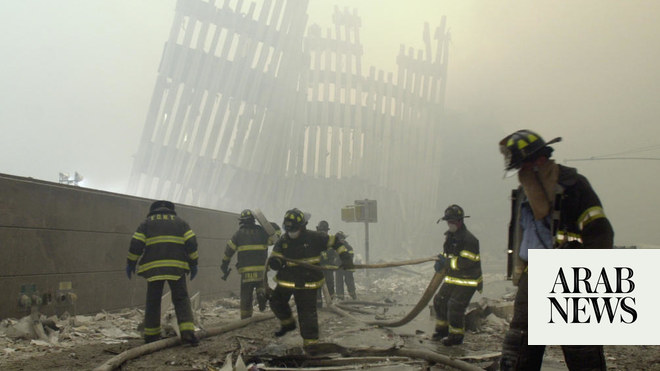
Americans are remembering the 9/11 attacks and pondering the meaning of the US withdrawal from Afghanistan. The 20-year anniversary of Al-Qaeda’s terror strikes and the US-led military intervention in Afghanistan should prompt more evaluation of the ideological framework that shaped the war in Afghanistan and fostered the conflict in Iraq: Neoconservativism.
Defining neoconservativism is tricky, because it evolved over several decades. Furthermore, those who identify as neoconservatives sometimes disagree with each other. However, it is possible to identify the key characteristics of neoconservative thinking on foreign policy that dominated the first George W. Bush administration and shaped US policies after the 9/11 attacks.
In the post-Cold War period, neoconservatives argued that the world would be more peaceful, stable and prosperous under US hegemony. They believed, often naively, that most people around the world would welcome US interventions and the projection of US power, even if their authoritarian rulers did not.
Neoconservatives believed in the power of ideas, particularly promoting democracy and free-market capitalism. They wanted to reshape the world, especially the Middle East, by cultivating or forcibly establishing more democracies; they assumed that those democracies would be friendly toward the US. With a strong belief in the righteousness of their vision, they were very willing to use military force and other tools to change the world. They embraced unilateral US action and were willing to work with allies or multilateral institutions only when those partnerships would actively serve their goals.
The neoconservatives opposed authoritarian regimes, especially those that actively defied the US, anywhere in the world. However, from the 1990s into the Bush administration, they obsessively focused on Iraq. They believed that the US should have overthrown Saddam Hussein during the 1991 Gulf War. Saddam represented a brutal dictator who threatened US allies and global markets and security.
Many neoconservatives believed that if the US overthrew Saddam, Iraq could quickly become a pro-US democracy, starting a cascade effect in the Middle East that would lead to more democratic governments friendly to the US and Israel. The neoconservatives also saw a US-aligned Iraq as a potential way to prompt regime change in Iran, another favorite neoconservative target.
However, the idea that the US could and should overthrow foreign leaders and actively redevelop foreign societies had limited support among Americans. The 9/11 attacks gave the neoconservatives a rare opportunity. They already held several key positions in the Bush administration and saw the attacks as a vindication of their worldview. The US likely would have gone to war in Afghanistan in response to the attacks without the neoconservatives, but they played a key role in broadening the US role in the country beyond destroying Al-Qaeda to remaking Afghanistan’s politics and society.
While neoconservatives embraced opportunities in Afghanistan to try out their ideas, Iraq was their primary focus. In 2003, the continuing post-9/11 sense of unity in the US gave them the chance to justify invading Iraq without facing significant questions or opposition. Those who did criticize the invasion were labeled unpatriotic. Bush received sweeping Republican support and some Democratic approval in Congress for the war. The neoconservatives actively shaped US policy in Iraq and were the main driving force behind efforts to turn Iraq into a democracy and ally.
The Iraq war was the peak of neoconservative power, but also became their primary weakness. Polls suggest that Americans today are almost evenly split on whether it was a mistake to enter into the wars in Afghanistan and Iraq. Many members of the foreign policy community are well aware that the justification for war in Iraq was weak and based on neoconservative ideology.
The US failures to remake Afghanistan and Iraq — and the enormous costs of those failures — have badly tarnished neoconservative ideas. In different ways, Barack Obama, Donald Trump and Joe Biden all largely rejected those ideas. The American public is highly unwilling to engage in new major interventions or any type of nation-building, as demonstrated by the relatively minimal US involvement in Syria and a lack of public support for military intervention in Iran.
Today, neoconservative thinking is down but not out. Neoconservatives retain some influential positions in the foreign policy community and might join future Republican administrations.
Kerry Boyd Anderson
However, neoconservatives continue to have some influence among Republican policymakers, media, and conservative think tanks. A small number of neoconservatives held positions in the Trump administration — notably John Bolton, who was eventually fired by Trump. The former president shared the neoconservatives’ hawkishness and disdain for multilateral institutions, but was not interested in using the military for regime change, democracy promotion or human rights, leaving many neoconservatives to bemoan his lack of interest in intervening in Syria or in actively overthrowing Iran’s regime.
Neoconservatives once had some influence among Democrats, given a shared interest in humanitarian interventions and human rights. However, few Democrats today are willing to use military power to pursue those goals.
Today, neoconservative thinking is down but not out. Neoconservatives retain some influential positions in the foreign policy community and might join future Republican administrations. As the US foreign policy community attempts to pivot to a focus on competition with China, the neoconservatives are able to accommodate that, with their emphasis on actively countering US rivals and on promoting US ideals in a war of ideas with Beijing. Furthermore, as 9/11 demonstrated, events can happen that force Washington to focus on an unexpected threat, opening the door to those who offer solutions. The neoconservatives stand ready to take advantage of such an event again.
Kerry Boyd Anderson is a writer and political risk consultant with more than 16 years’ experience as a professional analyst of international security issues and Middle East political and business risk. Twitter: @KBAresearch
Disclaimer: Views expressed by writers in this section are their own and do not necessarily reflect Arab News" point-of-view












